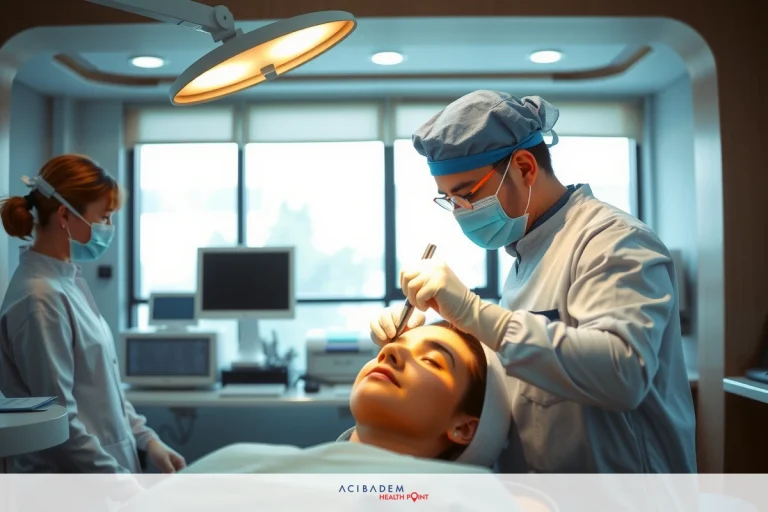How Much is Rhinoplasty in Oregon?
How Much is Rhinoplasty in Oregon? Rhinoplasty, often referred to as nose surgery or a ‘nose job’, is performed for both cosmetic and functional reasons. The cost can vary widely based on numerous factors such as the complexity of the operation, the surgeon’s expertise, and geographical location. Specifically focusing on Oregon, this article aims to shed light on these variables that contribute to the total cost of rhinoplasty.
It is important to note that some insurance companies may cover rhinoplasty if it’s medically necessary, for instance, to correct breathing problems. Although every insurance policy is different, patients are advised to consult their insurance company for more accurate information regarding coverage. Apart from insurance, there are several financing options available for those who consider having rhinoplasty in Oregon.
Factors Affecting Rhinoplasty Cost
Rhinoplasty cost is influenced by a myriad of factors, and it’s crucial to understand these elements when considering the procedure. The surgeon’s expertise plays a significant role in determining the cost of rhinoplasty. Surgeons with years of experience and specialized training in nose surgery often charge more for their services. However, their vast knowledge and skills can contribute to a successful outcome.
Another factor that can impact the cost of rhinoplasty is the complexity of the operation. Simple procedures such as minor reshaping or reducing the size of the nostrils are typically less expensive than complex surgeries involving the reconstruction of nasal structures. If the surgery is performed to correct functional issues like breathing problems, the cost may increase due to additional tests or treatments required.
The geographical location also plays a part in determining the rhinoplasty cost. In Oregon, prices may vary from one city to another based on local market factors. For instance, rhinoplasty cost in metropolitan areas with high costs of living might be higher compared to smaller towns. Finally, the pricing structure of the clinic or hospital where the surgery is performed can influence the total cost. Some institutions may include pre-operative care, post-operative follow-ups, and anesthesia fees in their pricing, while others may charge these separately.
Remember, while cost considerations are important, they should not be the sole determinant in choosing a surgeon for your rhinoplasty. It’s essential to prioritize quality and safety over price to ensure a satisfactory outcome from your nose surgery.
Consulting with Insurance Companies
Understanding your insurance coverage is a crucial step before proceeding with rhinoplasty. Insurance companies have different policies regarding the coverage for cosmetic and functional surgeries. Some insurance companies may cover rhinoplasty if it is performed to correct a medical condition such as a deviated septum that interferes with breathing. Conversely, surgeries performed purely for cosmetic purposes are generally not covered.
It’s important to engage in a comprehensive discussion with your insurance provider about the extent of coverage for rhinoplasty procedures. You should ask about the specific conditions that need to be met for the procedure to be considered medically necessary. Understanding these details can help you anticipate potential out-of-pocket costs if the procedure isn’t fully covered. Additionally, you may want to find out about the process of getting pre-authorization for the surgery, should this be required by your insurer.
In some cases, the surgeon’s office may assist with insurance matters. They can provide documentation detailing why the nose surgery is medically necessary or help contact your insurance company to ascertain coverage details. This collaborative effort can ease the process and ensure you make informed decisions regarding your rhinoplasty in Oregon. It’s essential to remember that while insurance can mitigate some costs, it may not cover all aspects of the surgery, so having a clear understanding of your policy is vital.

Financing Options for Rhinoplasty
Rhinoplasty costs in Oregon can vary based on factors like procedure complexity, surgeon experience, and clinic choice, typically ranging from $5,000 to $15,000 USD. When considering rhinoplasty, understanding the various financing options available can help manage the cost of the procedure. One common method is medical loans. These are personal loans tailored specifically for medical procedures like rhinoplasty. Several financial institutions and credit unions in Oregon offer these loans with varying interest rates and repayment plans. They can be a viable option if your insurance doesn’t cover the nose surgery or if there are significant out-of-pocket costs.
Another widely used financing option for rhinoplasty is healthcare credit cards. These cards work similarly to regular credit cards but are designed specifically for healthcare expenses. Some even offer promotional periods with zero or low-interest rates if the balance is paid off within a certain timeframe. However, it’s essential to read the fine print regarding interest rates after the promotional period and potential penalties for late or missed payments.
In addition to loans and credit cards, some clinics and hospitals provide in-house financing options for patients undergoing rhinoplasty. These can range from payment plans that allow you to pay for the procedure over time to discounts for upfront payments. It’s advisable to discuss these options with your surgeon or the office billing department to find a plan that suits your financial situation. Regardless of the financing option chosen, it’s important to have a clear understanding of all associated costs and terms before committing to ensure you’re making an informed decision about your nose surgery in Oregon.
Frequently Asked Questions
Will insurance cover the cost of rhinoplasty in Oregon?
Insurance coverage for rhinoplasty in Oregon varies depending on the specific policy and the purpose of the procedure. While some insurance companies may cover rhinoplasty if it is deemed medically necessary, such as to address breathing issues, purely cosmetic procedures are typically not covered. It's essential to consult with your insurance provider to understand the extent of coverage and any requirements for pre- authorization.
How much does rhinoplasty typically cost in Oregon?
The cost of rhinoplasty in Oregon can vary significantly depending on several factors, including the complexity of the procedure, the surgeon's experience, and the geographical location. On average, rhinoplasty costs in Oregon range from $5,000 to $15,000 or more. However, it's important to note that this is just a general estimate, and it's best to consult with a qualified surgeon for an accurate assessment of your specific case.
Are there financing options available for rhinoplasty?
Yes, there are various financing options available to help manage the cost of rhinoplasty in Oregon. Medical loans, healthcare credit cards, and in-house financing offered by some clinics or hospitals are popular options. These options allow patients to pay for their procedure over time or take advantage of promotional interest rates. It's recommended to thoroughly research and compare different financing options to find one that suits your financial needs and preferences.
How long is the recovery period after rhinoplasty?
The recovery period after rhinoplasty can vary from person to person. Generally, patients can expect some swelling and bruising around the nose and eyes for the first week or two. Most individuals are able to return to work or school within 1-2 weeks, but it may take several months for the full results of the surgery to be visible. It's important to follow your surgeon's post-operative care instructions and attend all scheduled follow-up appointments to ensure proper healing and optimal results.
Are there any risks or complications associated with rhinoplasty?
As with any surgical procedure, there are potential risks and complications associated with rhinoplasty. These can include infection, bleeding, scarring, and adverse reactions to anesthesia. It's crucial to choose an experienced and board-certified plastic surgeon to minimize these risks. Your surgeon will discuss potential complications and provide detailed pre- and post-operative instructions to help reduce the likelihood of complications and ensure a safe and successful outcome.











